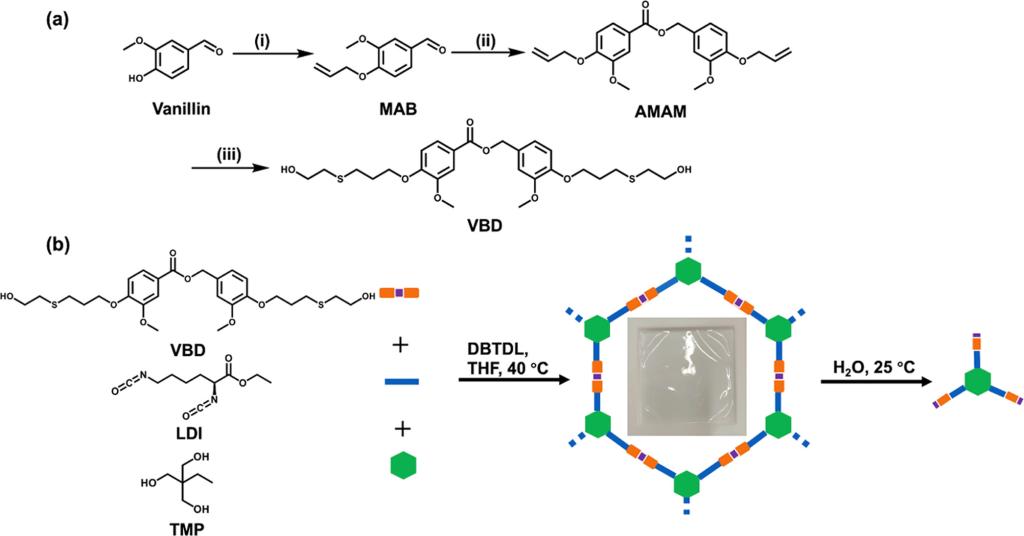
Abstract
Polyurethanes are widely used polymeric materials, but they are rarely biorenewable and degradable. Although some previously reported bio-based polyurethanes exhibit good thermal and mechanical properties, their bio-content is usually low, resulting from the only replacement of the diol monomer instead of the whole diol/diisocyanate pairs. In addition, traditional polyurethanes are often difficult to degrade, leading to environmental issues. To address these issues, we propose a solution by sourcing both the diols and isocyanates from biorenewable resources and introducing degradability into diols via the Tishchenko reaction, which is the disproportionation of two aldehydes to afford an ester bond with an atom economy of 100%. Commercially available bio-based vanillin was selected as the precursor for a vanillin-based diol (VBD) containing ester bonds. By reacting VBD with l-lysine diisocyanate (LDI) and trimethylolpropane (TMP) as a crosslinker, a series of bio-based thermosetting polyurethanes, VBD-TMPx, with high bio-based carbon content (>70.0%) were synthesized. The chemical structures and properties of monomers as well as polymers were characterized using nuclear magnetic resonance (NMR), Fourier transform infrared (FTIR) spectroscopy, thermogravimetric analysis (TGA), differential scanning calorimetry (DSC), dynamic mechanical analysis (DMA), and tensile tests. The obtained VBD-TMPx polyurethanes exhibit comparable mechanical properties (σ = 32.0 MPa; E′ = 2.7 GPa) to commercial thermosetting polyurethanes and demonstrate higher toughness (34 MJ/m3) than previously reported bio-based analogues. Additionally, the inherent ester bond in the VBD monomer enables the complete degradation of VBD-TMPx in a 0.1 M NaOH solution (THF/H2O = 1:1, v/v) within 3.5 h. This greatly broadens the available end-of-life choices, including the recovery of the monomers. This study presents a facile approach for creating degradable polyurethane materials with high bio-content and mechanical properties.
文章链接:ACS Appl. Polym. Mater. 2023